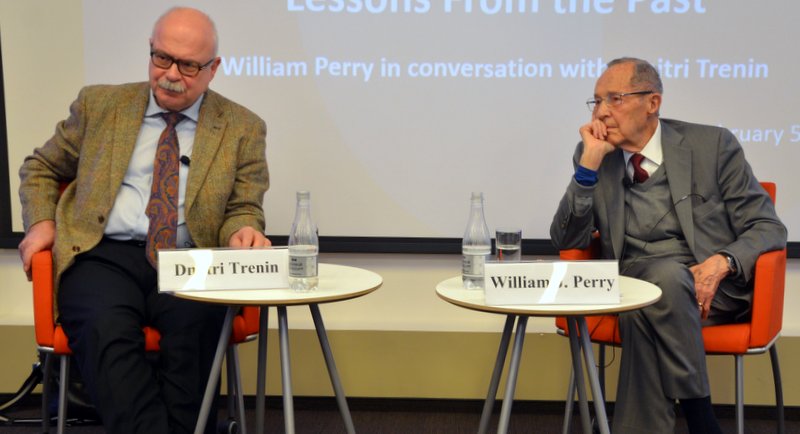Registration
You will receive an email confirming your registration.
Conventional understandings of deterrence and strategic stability are being challenged, as North Korea, a third-tier country, holds the United States, a global superpower, at nuclear gunpoint. Today, the world counts a diverse group of nine nuclear powers, while there is virtually no discipline in international relations.
Meanwhile, technological progress—from artificial intelligence, to biotechnology, and cyber capabilities—further complicates international relations. Mastering this new environment requires addressing several questions:
- As we look ahead, what lessons can be learned from the past?
- How can these lessons be applied to the realities of today and the likely situation of tomorrow?
- What is the nature of deterrence in this environment?
- Is there still a space for arms control?
These issues were discussed with one of the world’s leading thinkers and practitioners of nuclear policy, Dr. William Perry, U.S. Secretary of Defense under Bill Clinton.
Speaker
William J. Perry is a former U.S. Secretary of Defense.
Moderator
Dmitri Trenin is the director of the Carnegie Moscow Center and the chair of its Foreign and Security Policy Program.
